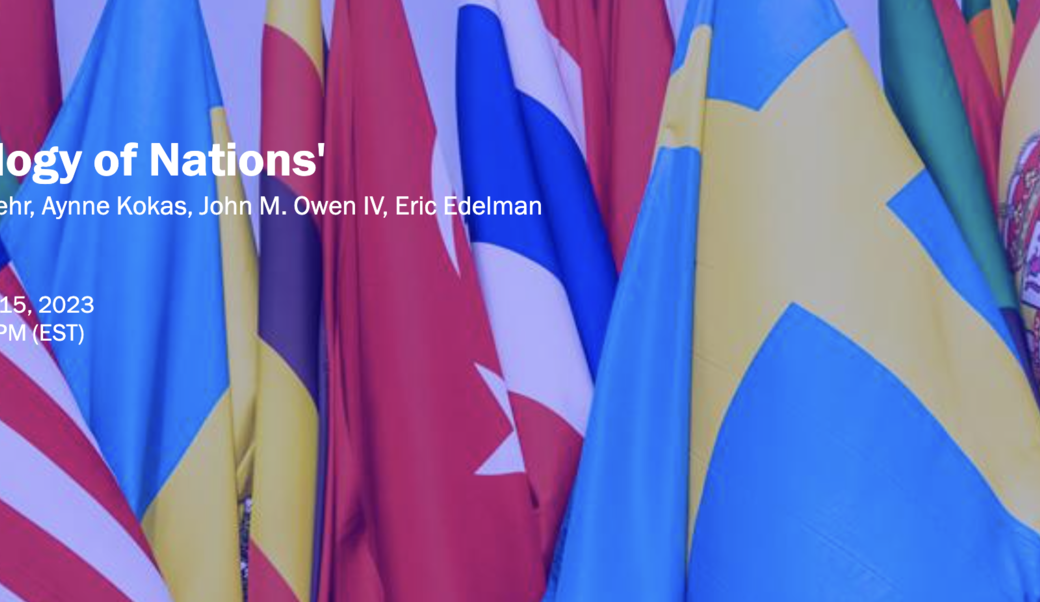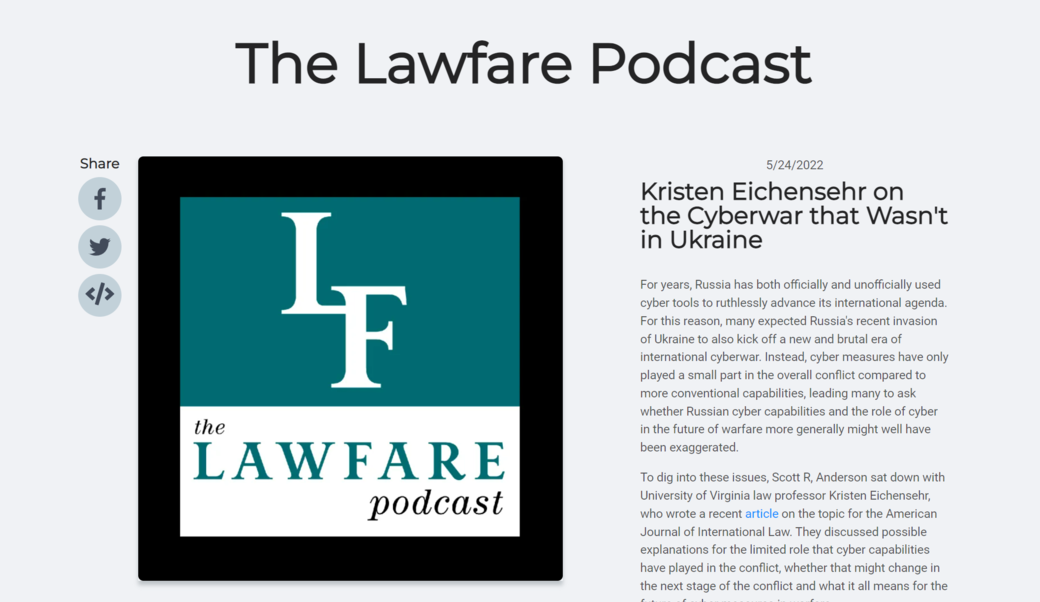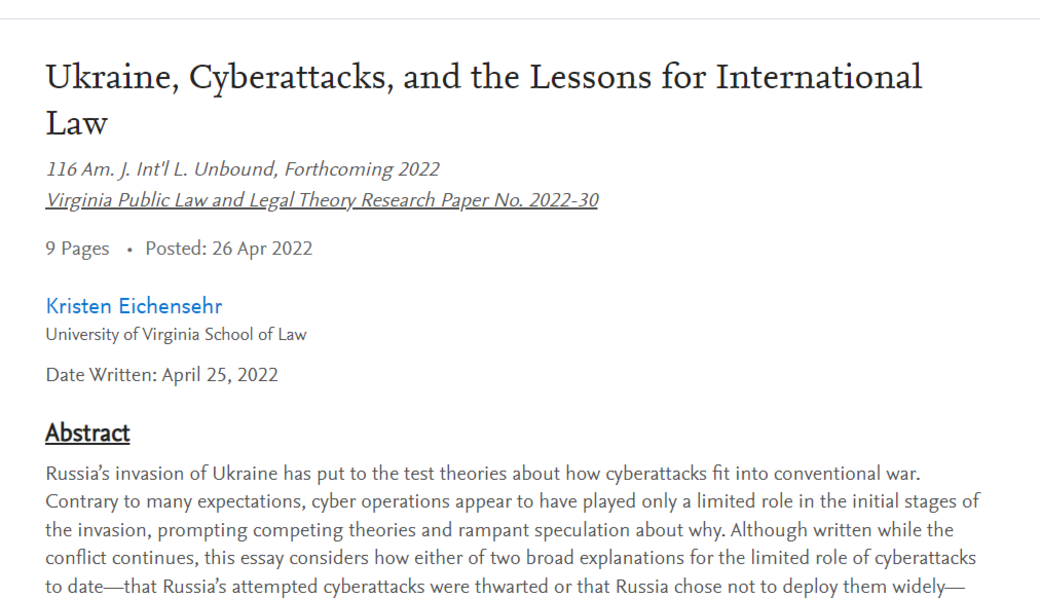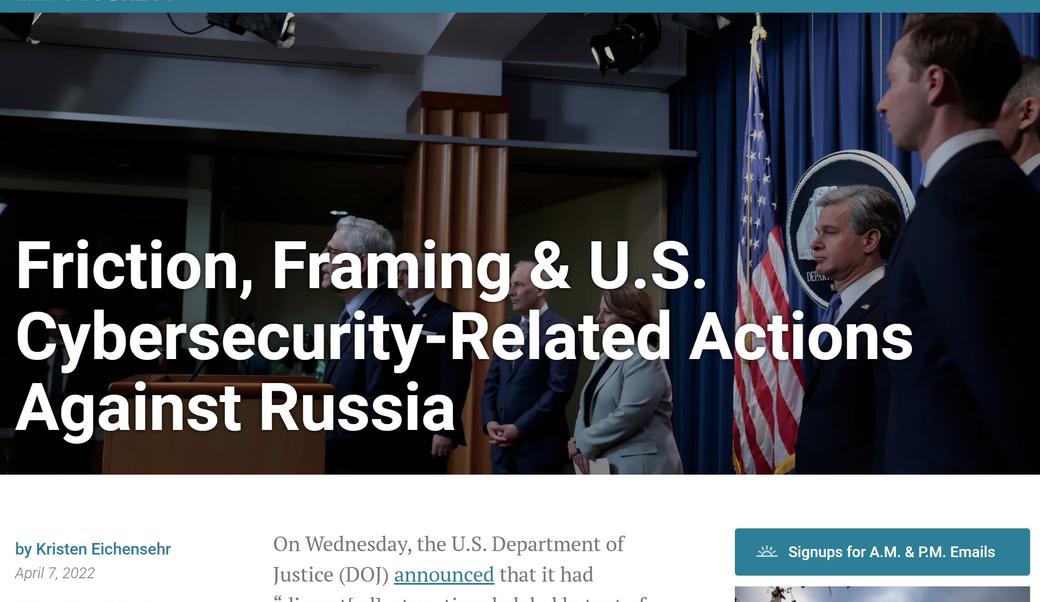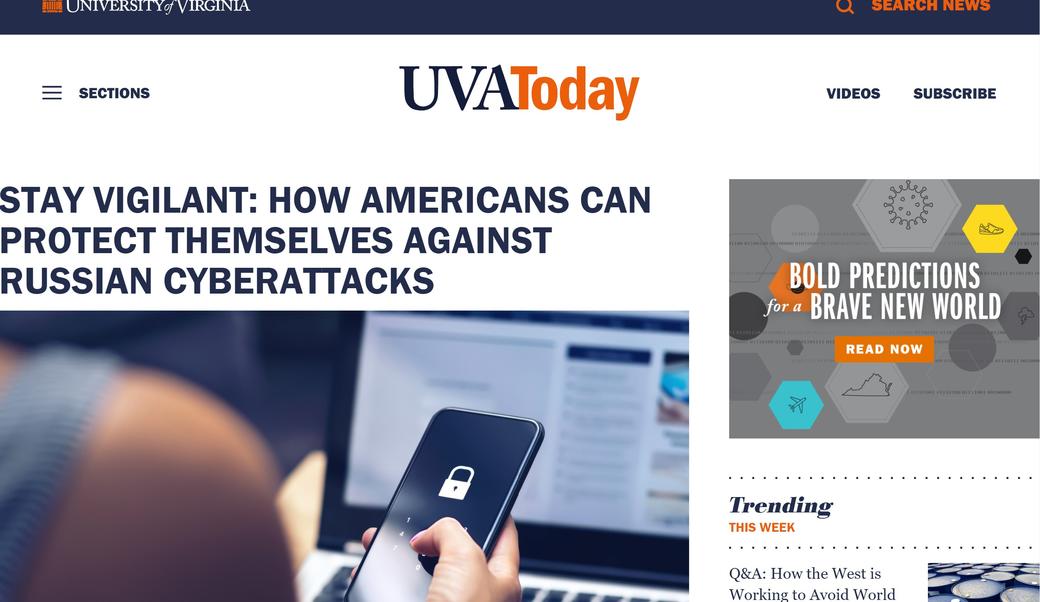Fast Facts
- Director, National Security Law Center at the University of Virginia School of Law
- Clerked for Supreme Court Justices Sandra Day O’Connor and Sonia Sotomayor
- Expertise on cybersecurity, foreign relations, international law, and national security law
Areas Of Expertise
- Foreign Affairs
- American Defense and Security
- Domestic Affairs
- Law and Justice
- Science and Technology
Kristen Eichensehr is professor of law and director of the National Security Law Center at the University of Virginia School of Law. She writes and teaches about cybersecurity, foreign relations, international law, and national security law. Her work has addressed, among other issues, the attribution of state-sponsored cyberattacks, the important roles that private parties play in cybersecurity, the constitutional allocation of powers between the president and Congress in foreign relations, and the role of foreign sovereign amici in the Supreme Court. She received the 2018 Mike Lewis Prize for National Security Law Scholarship for her article, “Courts, Congress, and the Conduct of Foreign Relations.”
Eichensehr is a member of the U.S. State Department’s Advisory Committee on International Law and the National Academies of Sciences, Engineering & Medicine Forum on Cyber Resilience. She serves on the editorial boards of Just Security and the Journal of National Security Law & Policy and previously edited the American Journal of International Law’s section on Contemporary Practice of the United States Relating to International Law. She is a faculty senior fellow at the University of Virginia’s Miller Center, as well as an affiliate of the Stanford Center for International Security and Cooperation and Stanford Law’s Center for Internet and Society.
Eichensehr clerked for Justices Sandra Day O’Connor and Sonia Sotomayor of the Supreme Court of the United States and for Judge Merrick B. Garland of the U.S. Court of Appeals for the D.C. Circuit. She also served as special assistant to the legal adviser of the U.S. Department of State and practiced at Covington & Burling in Washington, D.C.
